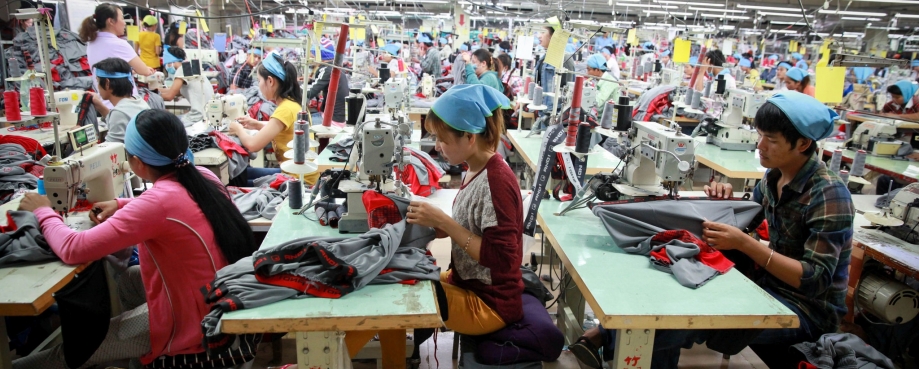
ETI's Executive Director, Peter McAllister, reflects on the end of 2017 and what our members have been doing to improve conditions for workers.
Do businesses have a duty to speak out when governments violate the rights of their citizens? Or is it a case of enlightened self-interest? These questions have been on my mind a great deal as I’ve watched events unfold in Cambodia and Myanmar.
Whether duty or self-interest, it’s encouraging that sometimes businesses do speak out. In Cambodia, I was part of a delegation of members and other leading brands and institutions that met with government ministers to express our concerns about draft provisions to labour law. The wider situation remains deeply troubling, but I was pleased to see some positive changes on minimum wage and labour dispute resolution as a result.
In Myanmar, while the Rohingya crisis lies largely beyond the reach of business, ETI is working with members to express our concerns directly to the government.
While we need to avoid tokenism, this is an admirable and - I hope - growing trend.
Against this backdrop, the UN Forum on Business and Human Rights in November felt especially pertinent, and we had an enthusiastic response to our subsequent workshop on the barriers to effective remedy. Discussions focused on company and state responsibilities and the points where they intersect, which, as one participant noted, are ‘so important for good regulation and longer term legal development’.
Meanwhile, in the UK, modern slavery remains high on the agenda, and we met with then Home Office minister, Sarah Newton, to push for a stronger Government response to build on the leadership shown to date.
The challenge, as ever, is making sure all this this translates into action, and we continue to provide the tools for members to help lead the way. This quarter, we published three new resources on transparency - a major developing area for ethical trade. As M&S’s Fiona Sadler said at our recent corporate members’ roundtable: transparency is coming whether businesses like it or not, so if you don’t want to be left behind, you’d better make sure you’re on that bus.
Many ETI members are already ahead of the curve. Whether it’s Princes’ work with migrants in Mauritius, Banana Link’s programme for tropical fruit workers, or Finlay’s work on gender equality, I continue to be inspired on hearing how ethical trade projects can work in practice. And I hope to hear many more of these stories as ETI enters its 20th anniversary year in 2018.
